Our time in Gqeberha, South Africa, began on Friday, October 4th, when Eileen and Sean warmly welcomed us from Nelson Mandela University. They picked us up from the airport and drove us to our accommodation. Their friendly smiles and hospitality gave us a positive first impression for the upcoming weeks.
Our first day began with a visit to Nelson Mandela University, where we were introduced to the South African education system, the history of rural schooling, and the country’s linguistic landscape. Learning how language plays a significant role in shaping the educational experience here was eye-opening. With 12 official languages, most students come from homes where English is not the first language, which may cause a language barrier in the classroom.
We also visited the university’s nature reserve, where a guide showed us and told us about the vegetation. Unfortunately, no animals were spotted. Over lunch, we had informal conversations with faculty and students who had their teaching practice in Norway earlier this year. It was fascinating to learn more about their experience in Norway and their thoughts on the difference between the Norwegian and South African education systems.
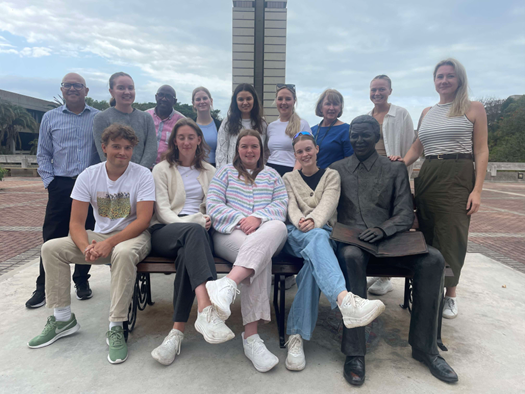
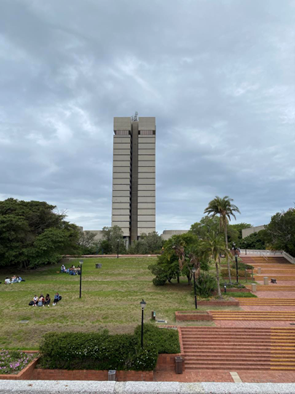
Tuesday marked our first visit to Machiu Primary School, and it was a good experience. We were greeted with a warm welcome by both staff and students. The teachers we met were incredibly open, and we were excited to start teaching practice.
We spent our first day with a 1st grade class that introduced us to teaching at Machiu. The children were full of energy and showed a lot of warmth and affection toward us as new teachers. The students showed us and the other teachers another level of respect compared to what we are used to; for example, they called us “teacher” and “miss/mr.”. With around 30 to 40 students per class, the number of children in each classroom was significantly larger than what we were used to. However, despite the large class sizes, the teacher managed to maintain discipline in the classroom.
This teaching practice focuses on the interdisciplinary topic of health and life skills. Life skills is a subject that revolves around practical, everyday knowledge that will serve the children throughout their lives. We observed lessons on dental health, house materials, and traffic safety. In 7th grade, life orientation lessons took a more mature turn, covering the topic of sexual education. This subject was handled with care and respect, reflecting the importance of preparing students academically, socially, and emotionally for the challenges they will face. During this week, the school also had a visit from Uviwe Child & Youth Services, an organization dedicated to child and youth development.
Another notable aspect of Machiu Primary is that students from quintiles 1 to 3, schools in the lower socio-economic brackets, receive government support to cover basic needs such as food. Students are provided breakfast and lunch daily, ensuring they have the necessary energy to focus on school. The food that they are given is traditional isiXhosa.
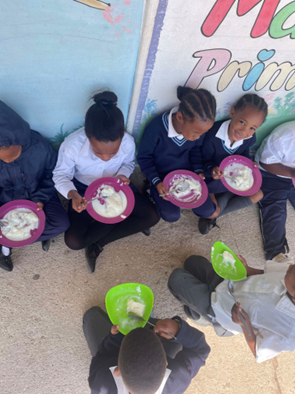 |
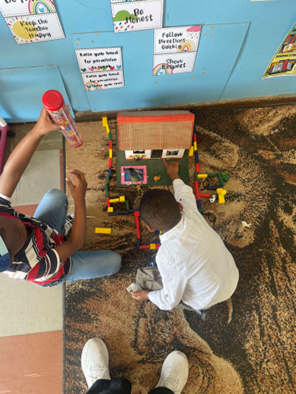 |
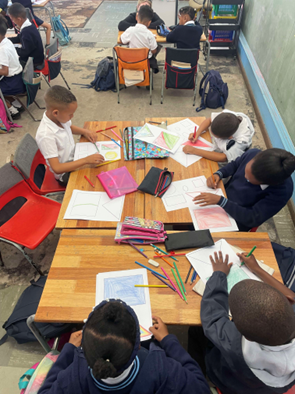 |
A unique aspect of the school culture at Machiu is the involvement of parents and local community members in the daily functioning of the school. Many non-teaching staff, including those preparing meals and handling maintenance, are parents or individuals from the surrounding area. This fosters involvement in the school and helps create job opportunities for those in need. This initiative strengthens the bond between the school and the community.
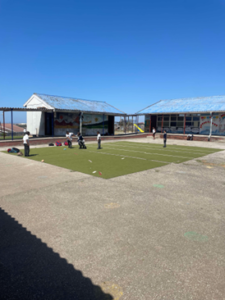 |
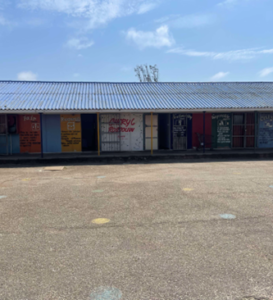 |
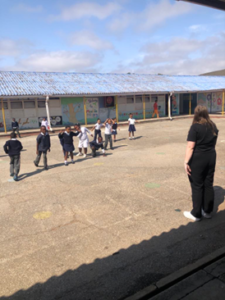 |
In addition to the physical education classes, Machiu Primary offers after-school sports programs. These activities allow students to stay active, be social, and develop teamwork skills.
Karianne, Nora, Mina, Marte and Torjus